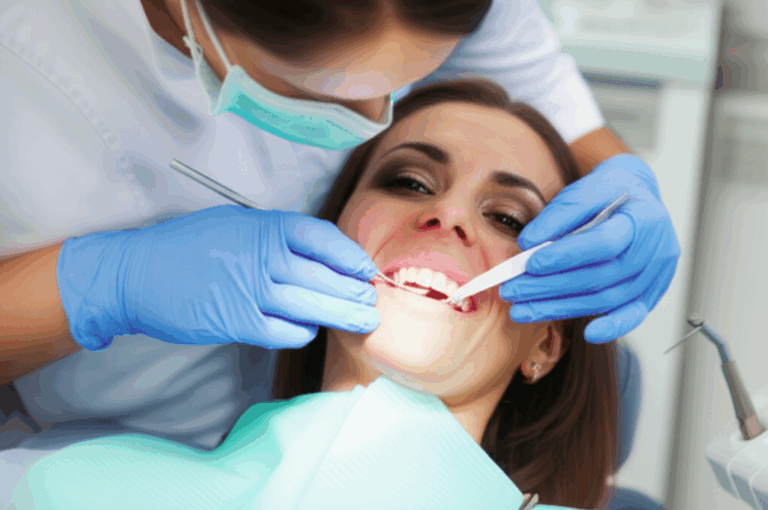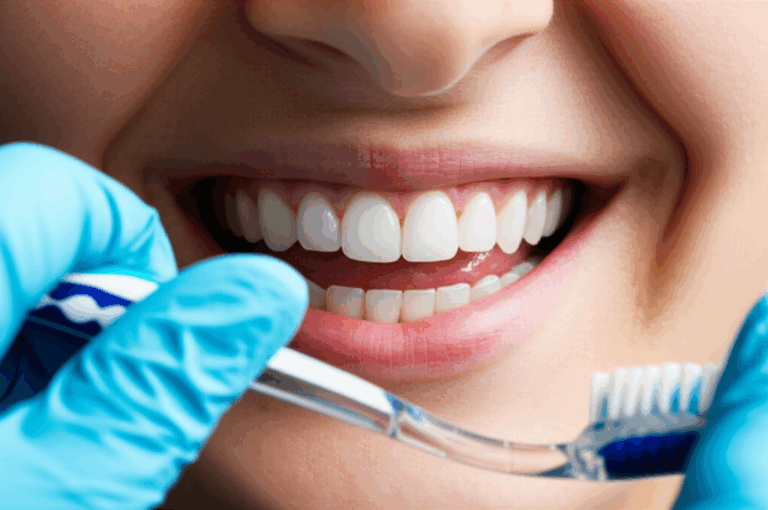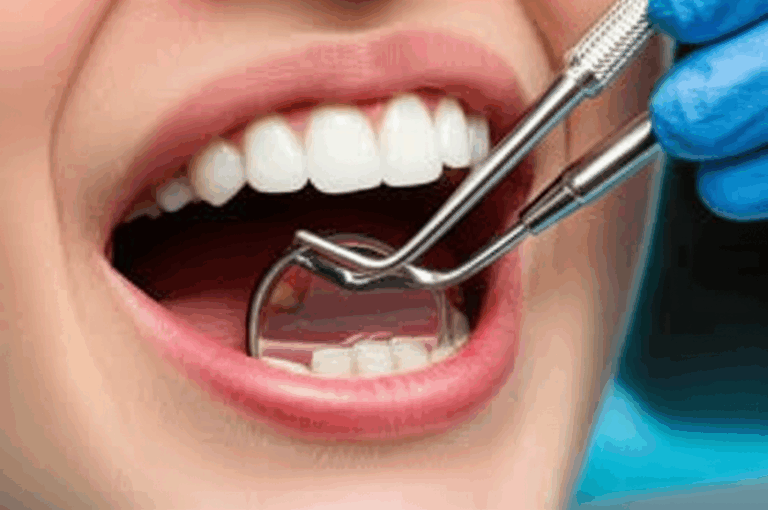
Does Health Insurance Cover Dentist Visits? Your Easy-to-Read Guide to Dental Coverage
When you need to see the dentist, your first thought might be: Does my health insurance pay for this? The answer isn’t always clear. This guide explains how health insurance and dental insurance work, when you’re covered, what options you have if you need to save money, and how to keep your teeth healthy without breaking the bank. You’ll find clear answers, simple tips, and everything you need to make smart choices for your family and your smile.
Table of Contents
1. The Basics: Does Health Insurance Cover Dentist Visits?
Let’s get to the main question: Does your regular health insurance pay for dentist visits?
The short answer is: Not most of the time. Most health insurance plans do not pay for normal dental visits. This means things like cleanings, check-ups, fillings, or x-rays at the dentist’s are not paid for. You need a special dental insurance plan for those things.
Why does this matter? Without dental insurance, you might pay a lot out of pocket or skip visits—which leads to worse, more costly problems later.
Problem:
You think your health insurance takes care of every health need—including your teeth. But dental care is handled separately, and this mix-up can bring on big, surprise bills.
Agitate:
Let’s say your child needs braces, or you wake up with a sore tooth and rush to the dentist. It’s only when you get there that you learn your health plan doesn’t pay, and now you face a big bill you weren’t ready for.
Solution:
Knowing how dentist visits are covered—and acting before you need dental help—can save you and your family stress, money, and pain.
2. What’s the Difference Between Medical and Dental Insurance?
Lots of people think health and dental insurance work the same way. But they don’t.
Medical insurance is for things like getting sick, breaking a bone, having surgery, or going to the hospital. Dental insurance only helps pay for your teeth, gums, and mouth.
Key differences:
- What is covered: Medical plans cover your body and sicknesses. Dental plans cover teeth, gums, and mouth problems.
- How you pay: Dental insurance is usually a separate monthly cost or added on. Medical insurance often comes with your job or a government plan.
Dental plans usually pay better for prevention—things like cleanings and x-rays—because stopping problems early saves money for everyone.
Table: Health vs. Dental Insurance
| Feature | Health Insurance | Dental Insurance |
|---|---|---|
| Pays for check-ups? | Yes (health only) | Yes (dental only) |
| Pays for cleanings? | No | Yes |
| Pays for fillings? | No | Yes |
| Pays for surgery? | Yes (body problems) | Only mouth/teeth |
| Regular coverage? | No (for teeth) | Yes (for teeth/gums) |
For anyone working in the dental field, like china dental lab or dental surgeons, knowing these differences helps answer people’s questions and keep care affordable.
3. When Does Health Insurance Pay for Dental Work?
Does health insurance ever pay for dental treatments? Yes, but only sometimes.
Medically necessary dental care is the special case. Here are a few examples:
When health insurance might help:
- Bad accidents: Your child falls and loses a tooth. If it’s a real emergency, and the care must happen in a hospital, your health insurance may help pay for some dental work.
- Health problems: If you’re waiting for an organ transplant or starting cancer treatments, doctors might want you to check your mouth to stop infections. These dental checks or related care could be paid by health insurance.
- Surgery anesthesia: If you need dental surgery in a hospital (for example, if you have other health problems), sometimes health insurance pays for the sleep medicine, but not things like fillings or crowns.
But for normal things like braces or teeth cleaning? Health insurance doesn’t pay. For regular dental care, you need dental insurance, or you’ll pay yourself.
Sometimes, rare job plans let you add a dental rider to your health plan. This is not common, and it often only pays for cleanings or x-rays—not bigger treatments.
If you need things like dental implants, crowns, or veneers, experts such as emax dental lab make these, but your health insurance probably won’t pay for them.
4. How Do Government Programs Help with Dental Costs?
Some government programs help certain people get dental care—and some have pretty good benefits:
Medicaid
Medicaid helps people with low income. Kids up to 19 get dental care in all states—this means check-ups, cleanings, and even braces or fillings, if needed.
For adults, rules are different across states:
- Some states pay for all dental care.
- Some only pay for emergencies, like pulling a tooth or stopping pain.
- Some offer nothing except urgent tooth pulling after you turn 19.
Medicare
Medicare is for people 65 and older. Regular Medicare doesn’t pay for dental check-ups, cleanings, dentures, or fillings. You may get help if dental work must be done during a hospital stay for another health problem.
But here’s a plus: Medicare Advantage (Part C) sometimes gives dental benefits like check-ups, x-rays, or cleanings.
CHIP (Children’s Health Insurance Program)
CHIP is for kids in families who make too much for Medicaid, but not enough for private insurance. It always pays for dental care.
The Affordable Care Act (ACA) Marketplace
- For kids: Dental is a basic need under ACA plans, so it’s included or you can add it for children.
- For grown-ups: ACA doesn’t make dental coverage a rule, but you can buy a special dental plan from the Marketplace.
Veterans Affairs (VA)
The VA gives dental care to veterans, but you must meet some rules, like having a disability due to service.
Knowing what each of these covers helps you get care—and save money.
5. What Types of Dental Insurance Plans Exist?
Now let’s look at dental insurance. There’s more than one way to cover your teeth.
Types of Dental Plans
- PPO (Preferred Provider Organization): You can pick your dentist, and you pay less if you go to dentists in the plan’s network.
- HMO (Health Maintenance Organization): You choose a dentist from their list, and get care at a lower price if you stay in the network.
- Indemnity plans: You can go to any dentist. You pay first, then insurance sends you money back.
- Dental savings/discount plans: This is not real insurance—you pay a yearly fee and get cheaper prices at certain dentists.
What’s covered?
Most dental insurance shows it like this:
- Prevention (check-ups, cleanings, x-rays) — paid 80–100%
- Basic things (fillings, pulling teeth, root canals) — paid 70–80%
- Major things (crowns, bridges, dentures, surgery) — paid 50%
- Braces — sometimes extra, often with waiting time
You may also have:
- Monthly cost (premium)
- Deductible (what you pay before insurance helps)
- Co-pays/coinsurance (your part for each visit)
- Yearly max (most insurance will pay in a year)
- Waiting times (you may wait months before big treatments are paid for)
If you want crowns, bridges, or big fixes, labs such as crown and bridge lab help your dentist with these, but having insurance makes it cheaper.
6. What If You Don’t Have Dental Insurance?
No dental insurance? Don’t worry. Many people don’t have it, and they find ways to get care.
Here are some smart choices:
- Dental savings plans: Pay once a year and get 10–50% off at some dentists.
- Community dental clinics: These places, run by the government or charities, offer lower prices based on your money situation.
- Dental schools: Student dentists, watched by teachers, do dental care for less.
- Federally Qualified Health Centers (FQHCs): Health centers with dental care—often with payment plans.
- Pay over time: Lots of dentist offices let you pay in parts, or use a health care credit card.
- HSAs/FSAs (Health Savings or Flexible Spending Accounts): If you have one, use it to pay for dental work without paying taxes on that money.
- Ask about cash prices: Some dentists give discounts if you pay the whole bill up front.
Always ask your local dentist or community groups to find options near you.
7. How Much Do Dental Visits and Procedures Really Cost?
It helps to know prices before you make an appointment. Here are some average prices in the US if you have no insurance:
| Procedure | Cost Range |
|---|---|
| Check-up & Cleaning | $75 – $200 |
| Filling (per tooth) | $50 – $400 |
| Tooth pulled | $75 – $600 |
| Surgical tooth pull | $250 – $800+ |
| Root Canal | $700 – $2,000+ |
| Crown | $800 – $3,000+ |
These costs can go up quickly. For big fixes—crowns, implants, or dentures—labs such as a removable denture lab help your dentist, but it’s still best if insurance pays.
Without insurance, many people skip the dentist—risking pain and bigger bills later. Over a third of adults missed the dentist last year, mostly because of cost.
8. How Can You Check Your Own Coverage?
So, “How do I know what my health or dental insurance pays for?”
Here’s what to do:
- Read your booklet or online benefits: This tells what your plan pays for.
- Ask your insurance company: Call the phone number on your card or check their website.
- Check with HR at work: People in your job’s HR or benefits office can help you.
- Ask your dentist’s office: Most dentist offices help check insurance before you get care.
Tip: Always check before you make an appointment. This way you won’t be surprised with a big bill.
9. Why is Dental Health So Important?
It’s easy to forget about your mouth—but your mouth affects your whole body.
Here’s why seeing the dentist matters:
- Stops pain and losing teeth: Catching problems early keeps them small—and cheaper to fix.
- Saves money: Research shows every $1 on cleanings can save $8–$50 later on emergency care.
- Keeps your body healthy: Gum disease makes you more likely to get heart problems, diabetes, and other sicknesses.
People with dental coverage are about 2.5 times more likely to go for cleanings and check-ups—which keeps your body healthier too.
10. How to Get the Care and Coverage You Need
I’ve worried about both tooth pain and big bills. Here’s what I learned—and what dentists like Dr. Joe Dental tell people:
What to do:
The teams behind the scenes, like top dental labs, help make the crowns, bridges, and dentures that fix your smile. Dental staff work hard to get you the best results for your money. Your job? Stay aware and take action.
11. Summary: What to Remember About Dental Coverage
– Health insurance almost never pays for normal dental care—you need dental insurance for that.
- Government plans help some groups (kids, people who make less money, older adults) get dental care, but it’s different in every state and for every age.
- Most dental plans pay best for check-ups, with help for things like fillings or crowns up to a yearly limit.
- If you have no insurance, check out clinics, dental schools, savings plans, or ask your dentist if they’ll lower the price.
- Always check what your plan pays for before you go to the dentist.
- Seeing the dentist often is super important for your health and saves money.
- Always speak up and ask for help finding care and coverage—you deserve it.
Reviewed by Dr. Joe Dental, DDS
References
- National Association of Dental Plans (2023).
- Kaiser Family Foundation, “2023 Employer Health Benefits Survey.”
- Centers for Medicare & Medicaid Services (CMS).
- American Dental Association, “Medicaid Adult Dental Benefits: An Overview.”
- Healthcare.gov.
- CDC, National Center for Health Statistics (2021).
- ADA Health Policy Institute.
- Dr. Joe Dental, DDS—clinical consultation.
Stay informed, stay smiling!








